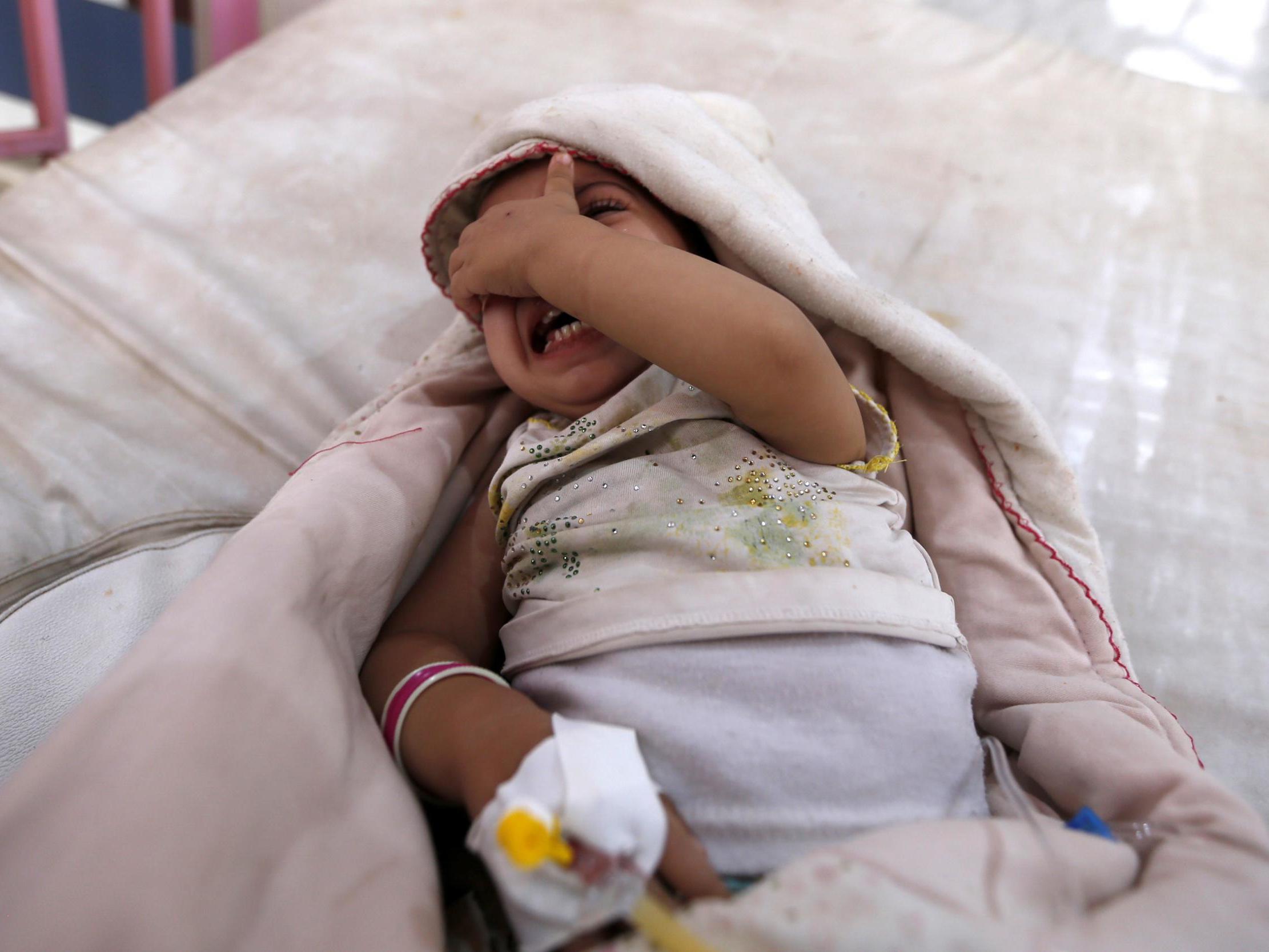Yemen cholera cases exceed half a million as civil war prevents effective aid
Worst outbreak in modern history has killed nearly 2,000 people as country’s infrastructure struggles to deal with impact of fighting and Saudi air and sea blockades

More than half a million people in Yemen have now been infected with cholera since the epidemic broke out in April, the World Health Organisation (WHO) has said, as medical workers on the ground struggle to cope with up to 5,000 new cases a day.
A total of 1,975 people have now died from the acute diarrhoeal infection caused by ingestion of contaminated food or water, it said in a statement on Monday. Last month, the organisation estimated that around half of cases and a quarter of the dead so far are children under the age of 15.
“The spread of cholera has slowed significantly in some areas compared to peak levels but the disease is still spreading fast in more recently affected districts, which are recording large numbers of cases,” the statement said, reporting a total of 503,484 infected patients.
Two years of civil war has decimated Yemen’s infrastructure and put the 27-million strong population on the brink of famine.
The collapse of the medical system has allowed cholera to balloon across the entire country. Aid organisations are struggling to reach people in remote, recently hit areas, and critical medical as well as food supply lines are being strangled by the Saudi-led blockade on Yemen’s airspace and ports.
Less than half of the country’s medical centres are still functional, 14.5 million people don’t have regular access to clean water, and in several provinces health and sanitation workers have not been paid in almost a year.
While it is easily preventable and treatable in hygienic conditions, cholera can kill the old, young and otherwise sick in hours if fluids are not replaced.
The situation in Yemen
Show all 14The UK’s Department for International Development (DFID) said last week that it will provide chlorine tablets and hygiene kits for 500,000 people, and rehabilitate seven health centres and 35 oral rehydration points which are expected to help a futher 250,000 in three of the worst affected areas - but NGOs warn much more is needed to effectively tackle the crisis.
“Yemen’s health workers are operating in impossible conditions. Thousands of people are sick, but there are not enough hospitals, not enough medicines, not enough clean water”, said Dr Tedros Adhanom Ghebreyesus, WHO’s Director-General.
“These doctors and nurses are the backbone of the health response – without them we can do nothing in Yemen. They must be paid their wages so that they can continue to save lives.”
Saudi Arabia and its regional partners have used the spectre of Iranian influence to justify an extensive bombing campaign on Yemen’s Shia Houthi rebels, who control the capital Sanaa, at the request of the exiled, internationally recognised Yemeni President Abdrabbuh Mansour Hadi.
The intense Saudi-led bombing campaign – which has in some cases targeted civilian buildings such as hospitals and funeral gatherings – has killed thousands of civilians.
Western governments including the UK have been heavily criticised for selling weapons export licences to Saudi Arabia, which rights groups say are destined for use in Yemen’s war.
Officials within former US President Barack Obama’s administration worried the sales could amount to complicity in war crimes.
The UN estimates $2.1bn (£1.6bn) is needed to stop Yemen become a completely failed state, but donor governments only pledged half that amount at an aid conference in Geneva in April.
“We urge the Yemeni authorities – and all those in the region and elsewhere who can play a role – to find a political solution to this conflict that has already caused so much suffering. The people of Yemen cannot bear it much longer – they need peace to rebuild their lives and their country,“ Dr Tedros said.
Subscribe to Independent Premium to bookmark this article
Want to bookmark your favourite articles and stories to read or reference later? Start your Independent Premium subscription today.

Join our commenting forum
Join thought-provoking conversations, follow other Independent readers and see their replies